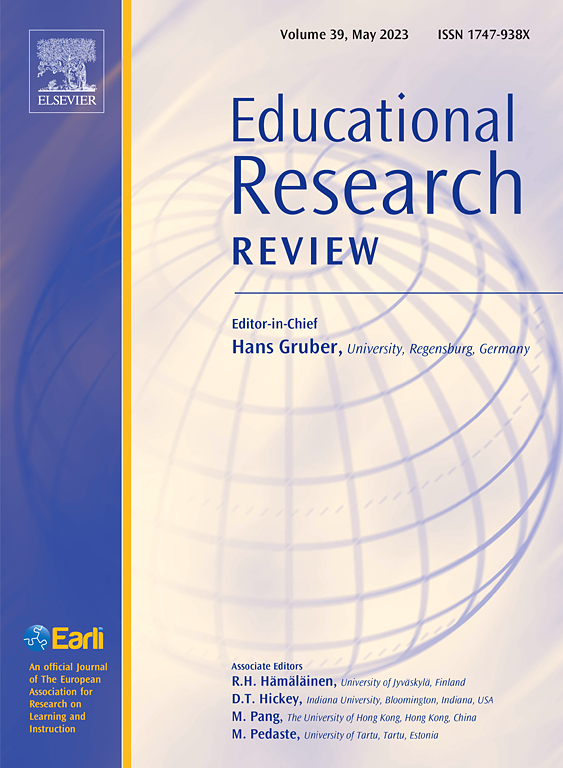Data literacy of principals in K–12 school contexts: A systematic review
IF 10.6
1区 教育学
Q1 EDUCATION & EDUCATIONAL RESEARCH
引用次数: 0
Abstract
This systematic review aims to clarify the concept of principals' data literacy and its various components. After examining 56 empirical studies, we have defined principals' data literacy and identified 63 specific indicators, organized into seven dimensions. Our findings highlight the complex tasks and responsibilities principals undertake to effectively lead with data. Although some data-related activities overlap between principals and teachers, the nature, scope, and purposes of data use differ between these roles. While teachers’ data literacy focuses on hands-on data creation, collection, and analysis, principals' data literacy revolves around leading their school communities and beyond. We argue that three of the seven dimensions—Dimension 3 (“Data use for fostering a data-driven culture”), Dimension 4 (“Data use for school improvement”), and Dimension 5 (“Data use for informing own practices”)—are particularly relevant to school leaders, thereby distinguishing principals' data literacy from that of teachers. We conclude by suggesting several practical implications based on our review, which could benefit the professional development of both school leaders and teachers at various career stages.
K-12 学校校长的数据素养:系统回顾
本系统性综述旨在澄清校长数据素养的概念及其各个组成部分。在考察了 56 项实证研究之后,我们对校长的数据素养进行了定义,并确定了 63 项具体指标,分为七个维度。我们的研究结果凸显了校长为有效利用数据进行领导而承担的复杂任务和责任。尽管校长和教师的某些数据相关活动存在重叠,但他们使用数据的性质、范围和目的却各不相同。教师的数据素养侧重于数据的创建、收集和分析,而校长的数据素养则围绕着领导学校社区和其他方面。我们认为,七个维度中的三个维度--维度 3("数据使用促进数据驱动文化")、维度 4("数据使用促进学校改进")和维度 5("数据使用促进自身实践")--与学校领导者特别相关,从而将校长的数据素养与教师的数据素养区分开来。最后,我们在回顾的基础上提出了一些实际意义,这将有利于处于不同职业阶段的学校领导和教师的专业发展。
本文章由计算机程序翻译,如有差异,请以英文原文为准。
求助全文
约1分钟内获得全文
求助全文
来源期刊

Educational Research Review
EDUCATION & EDUCATIONAL RESEARCH-
CiteScore
19.40
自引率
0.90%
发文量
53
审稿时长
57 days
期刊介绍:
Educational Research Review is an international journal catering to researchers and diverse agencies keen on reviewing studies and theoretical papers in education at any level. The journal welcomes high-quality articles that address educational research problems through a review approach, encompassing thematic or methodological reviews and meta-analyses. With an inclusive scope, the journal does not limit itself to any specific age range and invites articles across various settings where learning and education take place, such as schools, corporate training, and both formal and informal educational environments.
 求助内容:
求助内容: 应助结果提醒方式:
应助结果提醒方式:


